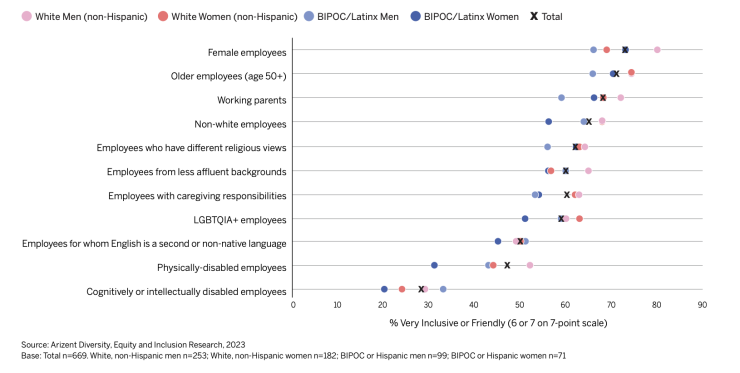As the effort to prioritize diversity, equity and inclusion strategies continues, it's important to get a pulse on where we are — and how far we still need to go.
Arizent, EBN's parent company recently released its third annual
Twenty-eight percent of employees are in favor of DEI and its priority in the workplace, according to the report, and 75% of respondents believe their company has
Read more:
Twenty-seven percent of BIPOC or Hispanic men and 31% of BIPOC or Hispanic women said it was extremely important for employers to address DEI discrepancies compared to only 13% of white men and 20% of white women. And when asked their personal reaction to DEI initiatives, 16% of white men and 9% of white women stated they felt it was overdone while 7% of BIPOC or Hispanic women said it felt performative and 5% of men felt it was
From the exclusive research, here are key takeaways that shed some light on the current state of diversity and inclusion efforts and what the future might hold.








